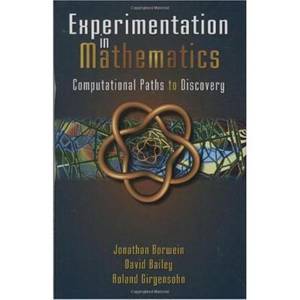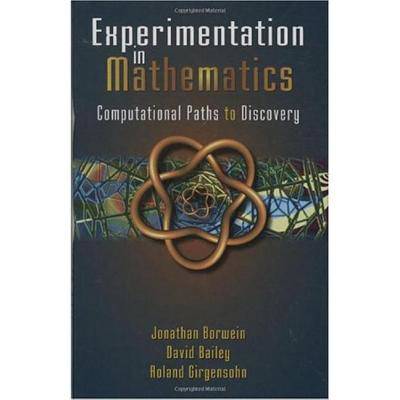
- Retrait gratuit dans votre magasin Club
- 7.000.000 titres dans notre catalogue
- Payer en toute sécurité
- Toujours un magasin près de chez vous
- Retrait gratuit dans votre magasin Club
- 7.000.0000 titres dans notre catalogue
- Payer en toute sécurité
- Toujours un magasin près de chez vous
Experimentation in Mathematics
Computational Paths to Discovery
Jonathan M Borwein, David H Bailey, Roland GirgensohnDescription
New mathematical insights and rigorous results are often gained through extensive experimentation using numerical examples or graphical images and analyzing them. Today computer experiments are an integral part of doing mathematics. This allows for a more systematic approach to conducting and replicating experiments. The authors address the role of experimental research in the statement of new hypotheses and the discovery of new results that chart the road to future developments. Following the lead of Mathematics by Experiment: Plausible Reasoning in the 21st Century this book gives numerous additional case studies of experimental mathematics in action, ranging from sequences, series, products, integrals, Fourier series, zeta functions, partitions, primes and polynomials. Some advanced numerical techniques are also presented. To get a taste of the material presented in both books view the condensed version.
Spécifications
Parties prenantes
- Auteur(s) :
- Editeur:
Contenu
- Nombre de pages :
- 372
- Langue:
- Anglais
Caractéristiques
- EAN:
- 9781568811369
- Date de parution :
- 12-04-04
- Format:
- Livre relié
- Format numérique:
- Genaaid
- Dimensions :
- 155 mm x 237 mm
- Poids :
- 730 g

Les avis
Nous publions uniquement les avis qui respectent les conditions requises. Consultez nos conditions pour les avis.






